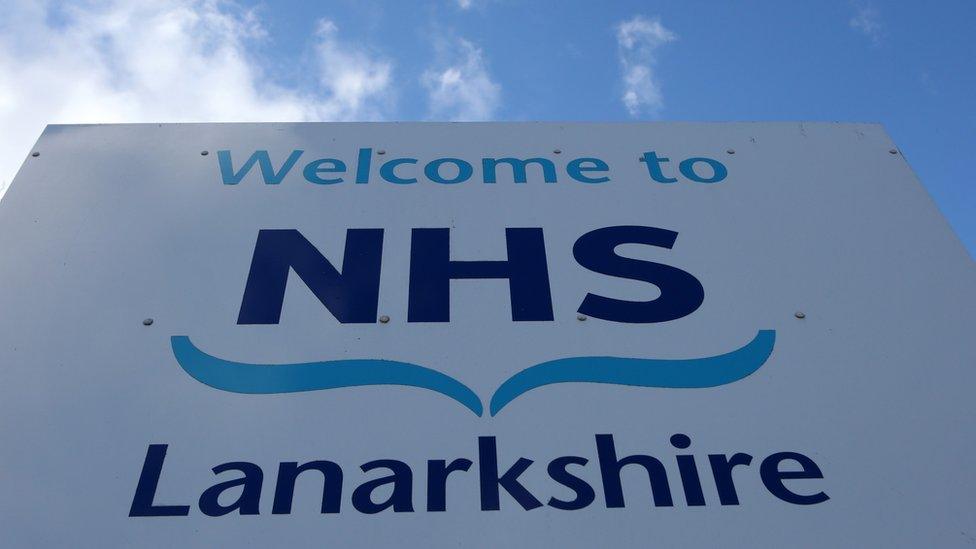Systemic failures led to North Lanarkshire baby death, parents say
- Published
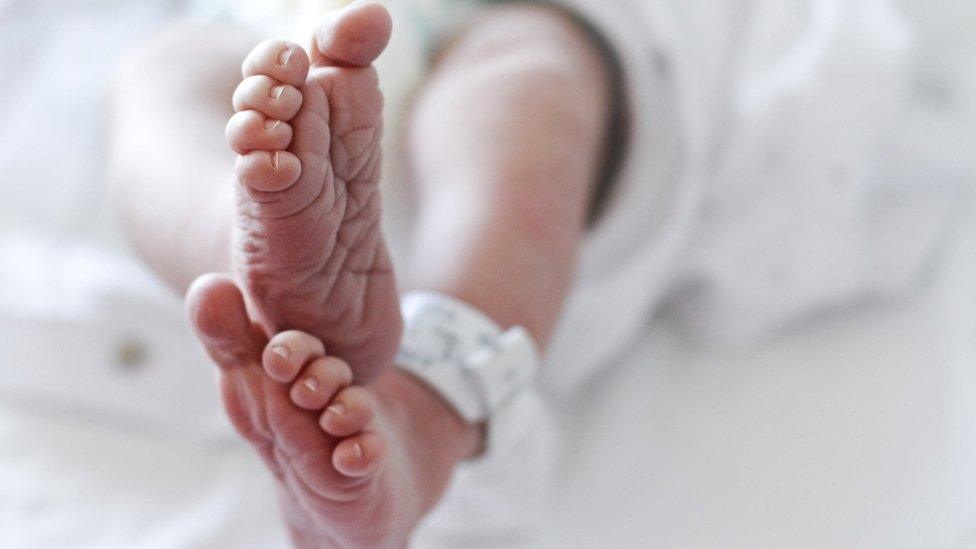
The parents of a baby who died only a few hours after birth say they believe individual and systemic failures led to her death.
Eckhardt and Rozelle Bosch were giving evidence at the start of a Fatal Accident Inquiry (FAI) into the deaths of three babies in North Lanarkshire.
Mirabelle Bosch died at Wishaw General Hospital on 2 July 2021. She was 12 hours and one minute old.
The FAI is also looking into the deaths of Ellie McCormick and Leo Lamont.
Ellie died at Wishaw General on 5 March 2019, five hours after her birth.
Leo was two hours old when he died at Monklands Hospital on 15 February 2019.
Mirabelle Bosch's father Eckhardt told the hearing at Glasgow Sheriff Court that the system had failed his family.
He said he believed his daughter had died due to an undiagnosed breech. This is where the baby is lying bottom or feet first in the womb, instead of head first.
The inquiry heard that all parties accepted that Mirabelle's head was trapped throughout the delivery.
Paramedics had attended the couple's home in Shotts but had been unable to fully deliver the baby and had called for more specialised help. However, they were only able to speak to hospital doctors over the phone.
After a second paramedic crew arrived, attempts were made to make contact with maternity triage at Wishaw. Five attempts were made before their call was answered.
Mrs Bosch was then transferred to hospital where she eventually received specialist care, but after being delivered Mirabelle was noted to be white, floppy and had no audible heart rate. Hours later, her life support was withdrawn.
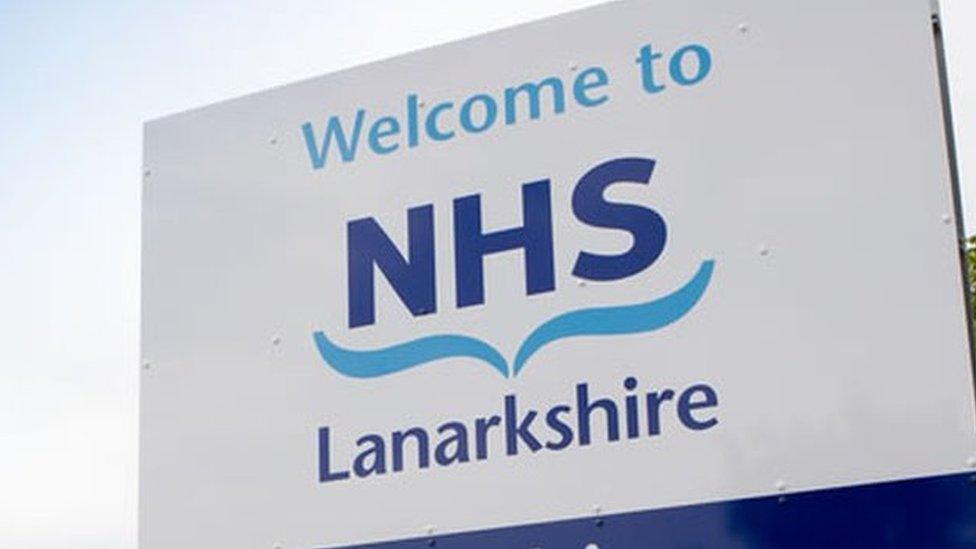
A post-mortem examination, conducted by Dr Dawn Penman, found that there was a long delay between the arrival of paramedics and transfer to hospital, and that the baby was "well" up until the point of delivery.
She found that although it was recognised by medical staff that the baby was in breech position at a 31-week scan, they assumed in later assessments at 37 weeks that she was no longer in breech.
Dr Penman's report said it was not clear how this assumption at 37 weeks was made, and that the assessment the baby had turned to another position appeared to have affected advice prior to, and during, labour.
She found it likely that the management plan would have been different had the breech been recognised.
Mirabelle's cause of death was recorded as breech home delivery with head entrapment.
'The system failed us'
Mr Bosch said his family were "led into a dark tunnel" by "misguided instructions" given to him and his wife which gave them a "wrong sense of security".
He claimed the procedures in place at Wishaw General were unable to diagnose Mirabelle's position correctly, which he believed had led to her death.
"The system failed us, we fell through the net," Mr Bosch said.
He said that throughout a pre-natal examination prior to his baby's death the couple were informed they were on a "safe pathway when the opposite was the case".
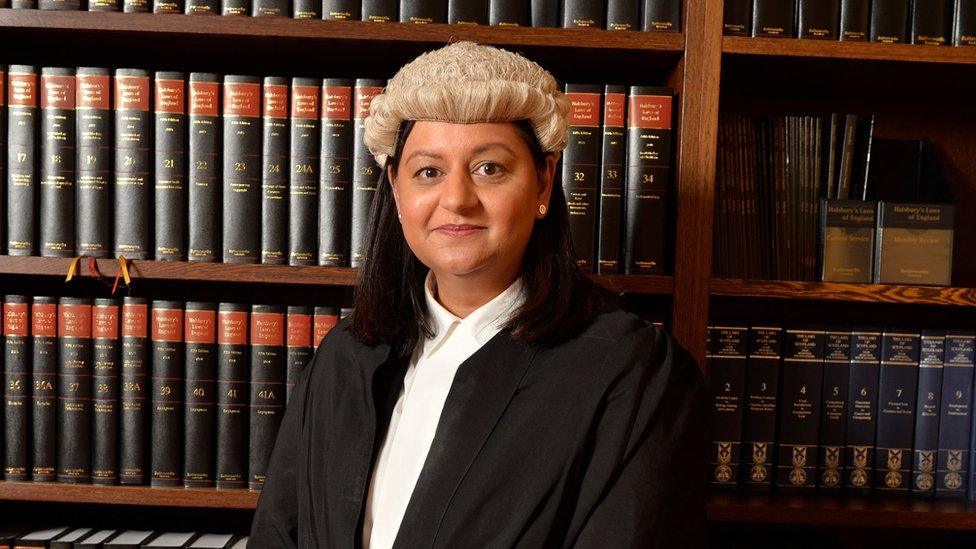
Sheriff Principal Aisha Anwar said the FAI would not be apportioning blame
"Incorrect diagnosis meant incorrect guidance, which meant incorrect decision-making ultimately causing the death of Mirabelle," he said.
He said: "We were told Rozelle was healthy and Mirabelle was healthy. I think this was a lie and the consequences have me standing here today.
"In all the scans, Mirabelle was not red flagged and was seen as normal. Me and my wife were calm due to the information put as it was.
"'Everything will be fine' rings in my ears."
Mr Bosch also said the Scottish Ambulance Service were "misguided and misled" and "incompetent to deal with this situation."
And he said he did not believe his wife should have been sent home from hospital after her waters had broken.
"We had to travel quite far away from Wishaw Hospital - it is a clear systematic failure on a large scale," he said, adding: "One thing led to the next - the system was not able to save us or Mirabelle."
Ms Bosch said she wished she had taken matters into her own hands after being sent home from hospital when her waters broke.
Mr Bosch told the court he still felt the trauma in his body thinking of how his wife was dealt with by paramedics when they called for help.
The death sparked a review of the Lanarkshire Health Board and eight recommendations were made - six of which have been implemented to date.
'Distressing and painful'
Mirabelle, Leo and Ellie were all said to have died "in circumstances giving rise to serious public concern".
In her opening comments, Sheriff Principal Aisha Anwar said: "The death of a child is an unimaginable and deeply tragic event in any parent's life.
"I would like to commence this chapter of the inquiry as I commenced the first preliminary hearing, by again offering my deepest condolences to the parents of each child."
She said hearing evidence was likely to be a "distressing and painful experience" for the parents but evidence that was not controversial had been agreed.
She added that the first chapter of the evidence would focus on the circumstances of Mirabelle's death, followed by those of Ellie and then Leo.
"It is important that I remind all present that the purpose of this inquiry is not to apportion blame," she said.
She said the inquiry was to establish the circumstances of the deaths of Mirabelle, Ellie and Leo and to consider what steps, if any, might be taken to prevent other children dying in similar circumstances.
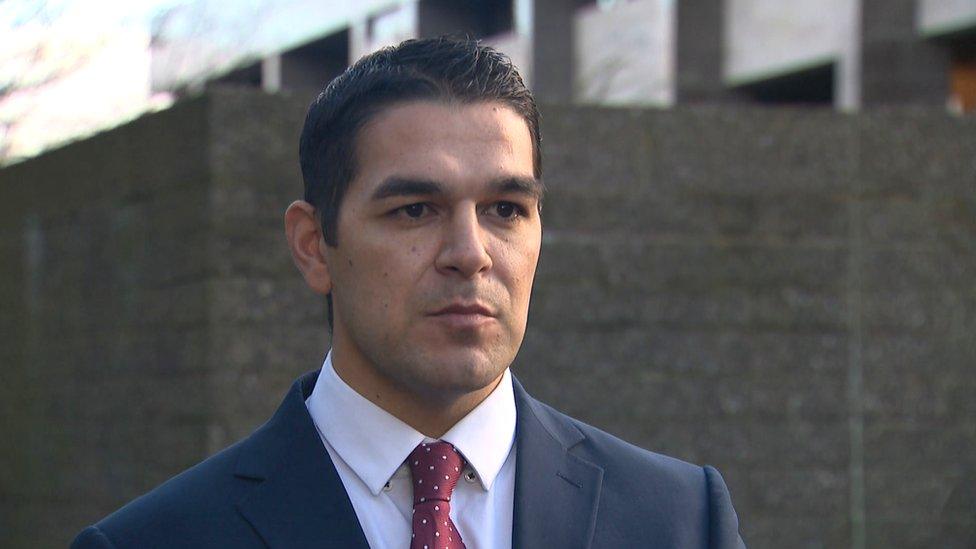
Darren Deery, who is representing the McCormick family, said the family believed Ellie's death was entirely avoidable
Lawyer Darren Deery, a specialist in medical negligence, is representing the McCormick family at the inquiry.
He told BBC Scotland News: "The family's understanding is that there were potential defects in the system, in that certain risk factors weren't highlighted in the way they could, and should, have been.
"And had the subsequent midwifery and obstetrics staff been aware of those risks, a different course of action would have been taken and the outcome may well have been different."
He said the McCormick family believed that Ellie's death was entirely avoidable.
The inquiry continues.
Related topics
- Published29 July 2022
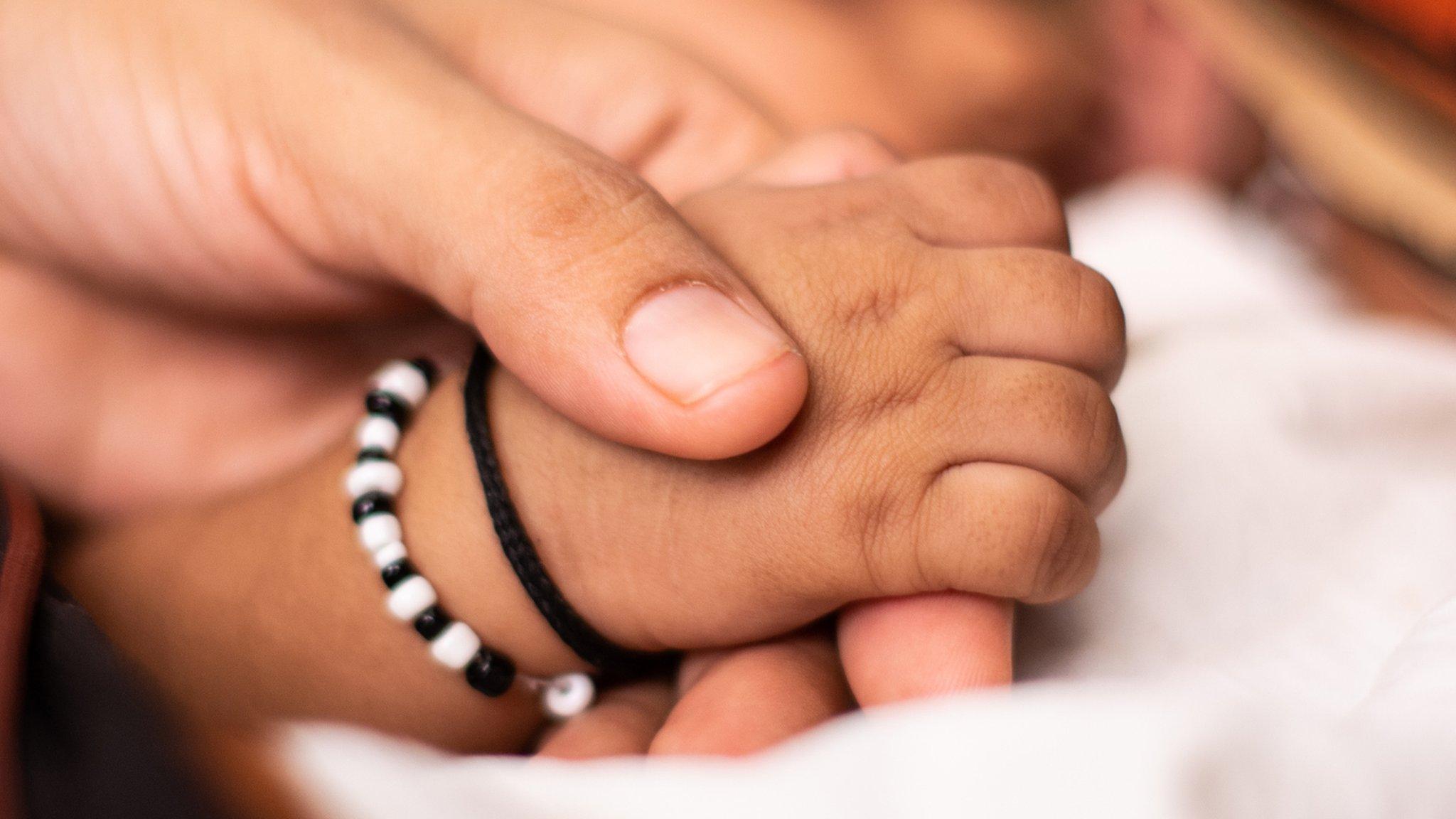
- Published7 December 2022
